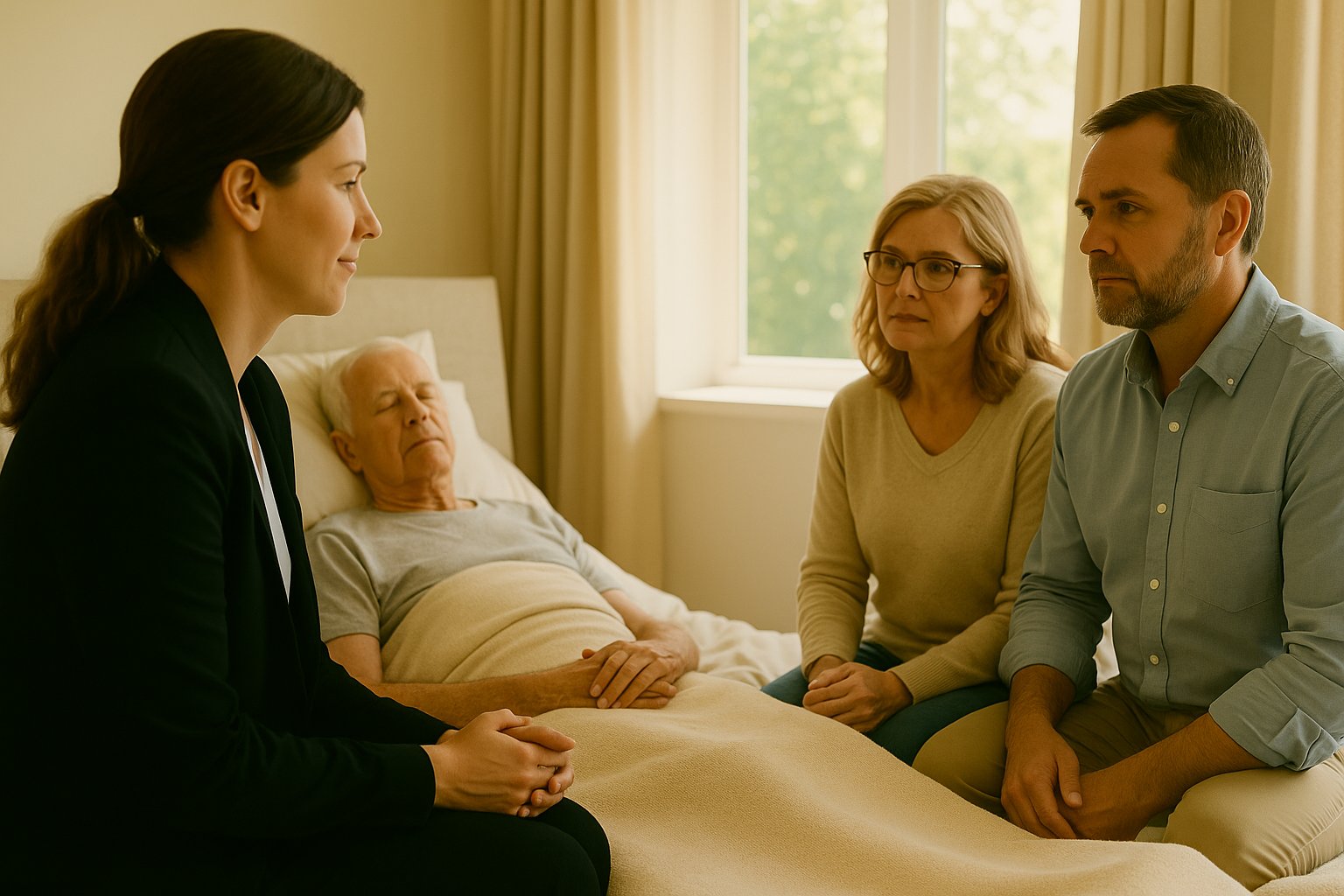Supporting someone who chooses MAiD (Medical Assistance in Dying) requires a unique blend of emotional steadiness, deep listening, and compassionate presence. Death doulas can play an essential role in this process by helping clients navigate the logistical, emotional, and spiritual aspects of their decision with care and respect.
MAiD, now legal in several regions including Canada, allows eligible individuals to request medical assistance in ending their life. It is a complex and deeply personal decision — one that often brings both relief and grief, clarity and uncertainty. Doulas are not involved in administering medications or providing any medical advice. Rather, their role is to accompany, to listen, to bear witness, and to uphold the values and wishes of the person choosing MAiD.
Understanding the Legal and Emotional Landscape
Doulas who support clients pursuing MAiD should be familiar with the legal framework in their region. In Canada, for instance, MAiD is regulated under federal law and includes eligibility criteria such as a grievous and irremediable medical condition, voluntary request, and informed consent. Knowing the basic process allows doulas to walk alongside their clients without confusion, helping them anticipate what to expect.
Yet, the heart of this work lies in the emotional landscape. Clients may experience a range of emotions — peace, fear, guilt, determination, sorrow, and even joy. Family members may hold differing opinions or struggle to process the decision. A doula can create a stable, neutral presence in the room — one rooted in acceptance and non-judgment. They become a trustworthy witness who honors the client’s autonomy while holding space for difficult feelings.
Practical Support During the MAiD Journey
Practical preparation is a vital part of the MAiD journey. Clients often need support in organizing their final days or hours. Doulas may help by:
- Creating a gentle and intentional environment for the MAiD procedure
- Coordinating with loved ones about visitation, privacy, or timing
- Helping the individual write legacy letters or record messages
- Planning rituals, music, or meaningful activities for the final day
- Providing a calm, supportive presence before and after the procedure
Each plan is unique. Some people want a quiet, private experience. Others may gather with family, share music, or say final words. The doula helps shape this process, ensuring that every detail reflects the individual’s values and comfort.
Emotional and Spiritual Companionship
One of the most vital roles a doula plays is offering emotional companionship. Clients choosing MAiD often face existential questions: Have I lived well? What legacy am I leaving? Is this the right time? A doula doesn’t offer answers, but they hold these questions with gentleness and respect.
For some, the presence of a doula helps ease fear or uncertainty. Clients can speak openly without fear of judgment or dismissal. The doula might sit in silence, offer guided meditation, or simply hold a hand. These small acts of presence can offer immense reassurance.
In cases where family members struggle with the decision, a doula may help facilitate conversations, soften tension, or encourage respectful communication — always centering the client’s wishes and voice.
Supporting the Family and Circle of Care
MAiD can affect families in complex ways. Some feel relief knowing their loved one’s suffering will end. Others feel pain, confusion, or unresolved grief. A doula can offer aftercare — including grief support, legacy project guidance, or referrals to therapists and support groups. They help family members begin to make sense of what has happened and how to honor the memory of their loved one.
In some cases, doulas are present during the MAiD procedure itself — sitting quietly in the room, offering grounding support, or simply witnessing. This presence can bring a sense of continuity and calm.
Meeting Controversy With Compassion
It’s important to acknowledge that not everyone views MAiD the same way. Some people hold moral or religious objections. Others may feel uneasy even if they support the client’s choice. As a death doula, your job is not to convince, argue, or debate — but to remain rooted in compassion.
Doula support is always guided by the Platinum Rule: “Treat others as they wish to be treated.” That includes honoring beliefs, values, fears, and wishes — even when they differ from your own. Doulas serve as bridges between medical providers and families, between fear and acceptance, and between isolation and support.
Final Thoughts
Supporting someone who chooses MAiD requires courage, clarity, and deep presence. As a death doula, your role is to help ensure this final chapter is not rushed or clinical — but meaningful, intentional, and grounded in love. You don’t need all the answers. You need an open heart, a steady presence, and a commitment to honoring each person’s path.
If you feel called to support clients on this path, ensure you understand your legal responsibilities and local laws. Partner with MAiD providers, hospice teams, or ethical care networks to build respectful relationships. And remember: your presence can be a balm — a quiet, profound gift in someone’s final hours.
Want to deepen your knowledge and skills as a death doula? Explore our full certification program here.

